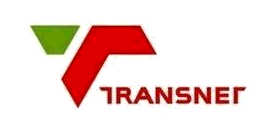 The economy cannot afford strike at Transnet
The economy cannot afford strike at Transnet
SEIFSA understand all too well the consequences of industrial action in the context of wage bargaining. A four-week strike in 2014 followed by a three-week strike last year left many an employer on the brink of contemplating closure.
Arguing that the right to strike is enshrined in our constitution and strike action is a functioning mechanism of collective bargaining is ignoring the obvious and avoiding reality. South Africa is on its knees. The stakes are higher than they have ever been. Our economy is under siege as it battles a job, growth and hunger crisis. A devastating 63.9% of South Africans under the age of 24 are unemployed, consumer inflation is at a 13 year high and one in four people live below the food poverty line.
A full-blown strike at Transnet, which seems unavoidable, will have a serious effect on the economy, it will halt exports and put thousands of jobs on the line. Under the current harsh economic climate, Transnet as with Eskom, is crucial to the country’s economy. Transnet’s rail and port facilities are key to exporting the country’s bulk commodity exports such as coal, iron ore, chrome and manganese.
Exporters rely heavily on efficient rail networks and ports, but as we know, Transnet has been operating below capacity for years as it grapples with a shortage of locomotives, cable theft, vandalism, poor maintenance and outdated and slow port infrastructure. This substandard service has had a significant impact on the local steel industry and its ability to manufacture steel to meet its customers’ demands. In some instances, primary steel producers have had to shut down operating plants due to the unavailability of raw materials, at great cost to their businesses and the economy.
A full-blown strike at Transnet, will add to the damage suffered by the South African economy. This will be as bad as load-shedding in terms of economic impact. For an economy battling to maintain momentum, this could well be the final nail in the coffin.
With load-shedding being reintroduced, workers threatening to paralyze Transnet and Transnet having already declared force majeure, we appeal for a constructive approach that seeks to advance the interests of our country.
We know that it will not be easy to make compromises, but we appeal nevertheless for a win-win approach to the negotiations, as opposed to a winner-takes-all approach. Our plea to all the negotiators, and to those from whom they obtain their mandates, is that you rise above your narrow interests and put the interests of the South African economy first, and look to settle quickly.
